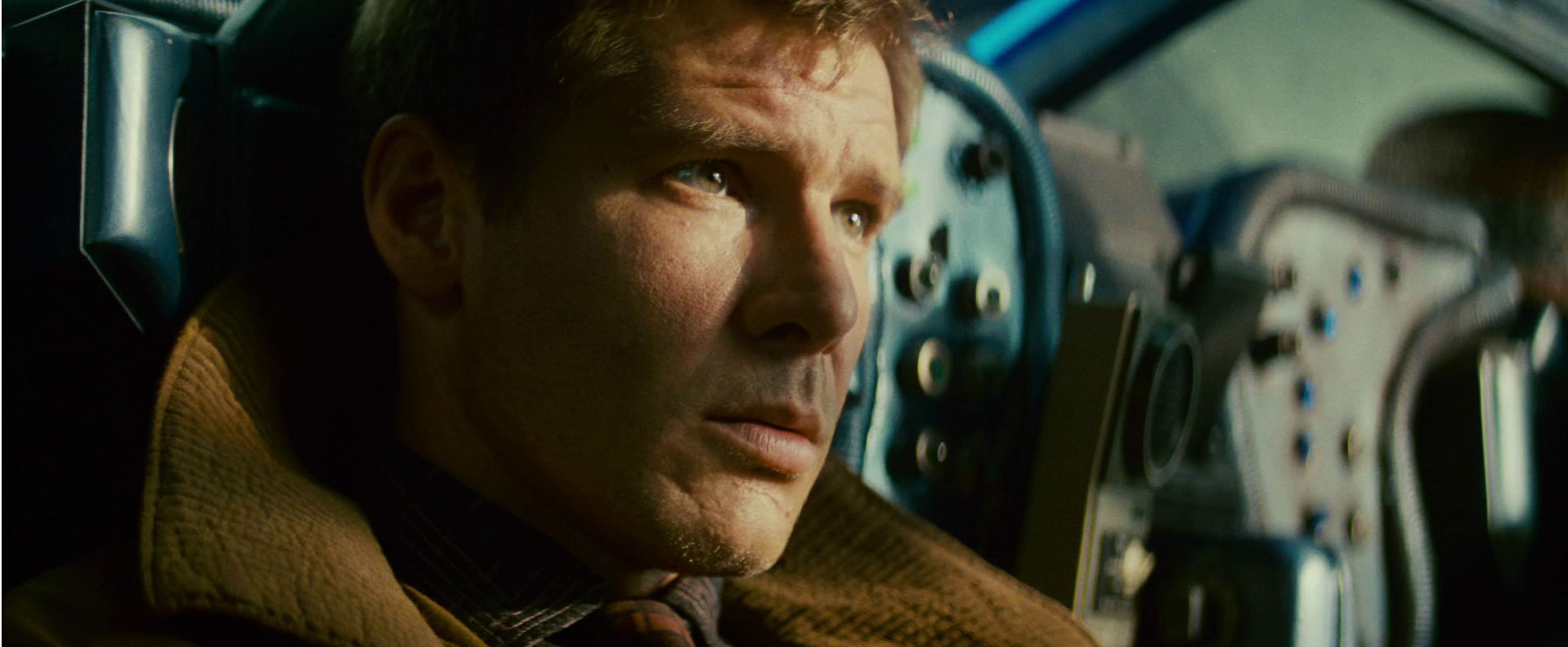← Back to Reviews
in

Blade Runner -
Where does one begin with this cult classic? Move in. Stop. Track 45 right. Stop. Center and stop. Enhance. Stop.
"More human than human" is a motto that begs more questions than it answers. What makes us human? Peel back one layer, and we will find three more. Each one overlapping like scales on an artificial snake.
I take the outlandish view that any version of Blade Runner is the best version to watch. Each version, of which there are five, delves into the seedy underbelly of humanity. Overpopulation, climate change, mass extinctions, and pursuit of perfection. No single version holds more truth than the other, but it is agreed by many that The Final Cut is the proper choice. I contend, however, that even the theatrical cut has its merits, namely an introduction to a world that is still far off and alien to us.
What was once considered debatable is now held as fact: Our hero, Rick Deckard, is more human than human. He is the embodiment of our plights, our fears, and our dreams. He dutifully accepts the first, ignores the second, and questions the third. What does it all mean? No one has the answer; and so, what continually drives us forward is the same mechanism that drives Deckard. The endless search for meaning in a world devoid of it is no less dangerous than running on the edge of a blade. What use is meaning if it cannot be commodified?
Blade Runner is a film that deserves its status as a cult classic because of these things. It gives us no answers, no explicit meaning, and no purpose to which to cling. Instead, it paints a mirror copy of our own world in the darkest of grays. More human than human? Our humanity is already tough enough.

Blade Runner -
Where does one begin with this cult classic? Move in. Stop. Track 45 right. Stop. Center and stop. Enhance. Stop.
"More human than human" is a motto that begs more questions than it answers. What makes us human? Peel back one layer, and we will find three more. Each one overlapping like scales on an artificial snake.
I take the outlandish view that any version of Blade Runner is the best version to watch. Each version, of which there are five, delves into the seedy underbelly of humanity. Overpopulation, climate change, mass extinctions, and pursuit of perfection. No single version holds more truth than the other, but it is agreed by many that The Final Cut is the proper choice. I contend, however, that even the theatrical cut has its merits, namely an introduction to a world that is still far off and alien to us.
What was once considered debatable is now held as fact: Our hero, Rick Deckard, is more human than human. He is the embodiment of our plights, our fears, and our dreams. He dutifully accepts the first, ignores the second, and questions the third. What does it all mean? No one has the answer; and so, what continually drives us forward is the same mechanism that drives Deckard. The endless search for meaning in a world devoid of it is no less dangerous than running on the edge of a blade. What use is meaning if it cannot be commodified?
Blade Runner is a film that deserves its status as a cult classic because of these things. It gives us no answers, no explicit meaning, and no purpose to which to cling. Instead, it paints a mirror copy of our own world in the darkest of grays. More human than human? Our humanity is already tough enough.
